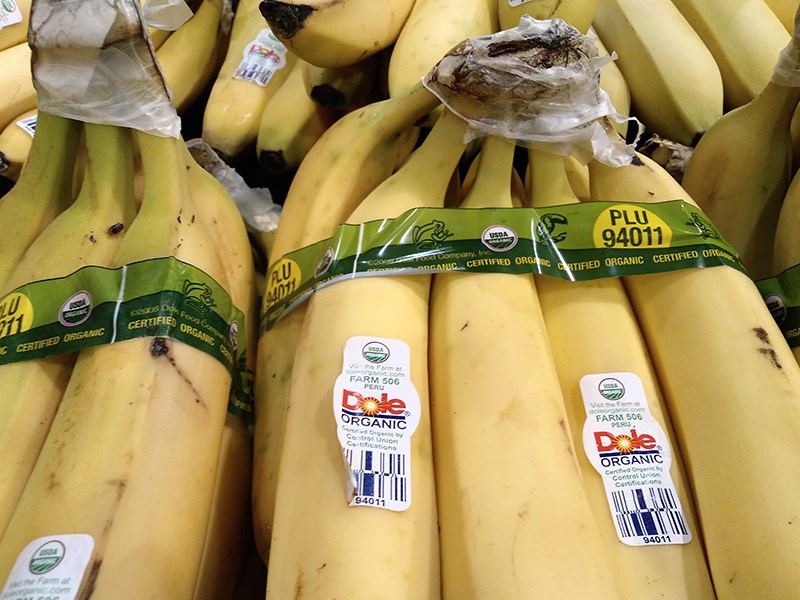Have you ever wondered about the volume of stickers on your bunch of organic bananas? Each banana is individually labelled, in case one should escape and be misunderstood as a plantain, or, gasp, a conventional piece of fruit.
With the significantly different price at the till, it makes sense that hard-to-distinguish produce be labelled to correctly identify it.
But we all know there are challenges that come with our current ways of labelling fresh produce with plastic stickers. One that you are probably most familiar with is the bother of de-labelling fruit and veggies after purchase. What’s even worse is discovering you haven’t done this, but have likely already eaten the label, leaving you contemplating what chemicals were in its glue.
Not only is the safety of the glues questionable, but produce stickers also become a source of soil and water pollution. When labels on peels, such as bananas and avocados are not removed before disposal, they end up as litter and microplastics in our natural environment.
If you backyard compost or garden, you’ve probably seen stray labels mixed in with your new crop of lettuce and carrots. And, although this may seem insignificant, it is but one source of microplastics insidiously entering our food supply.
Those who choose the convenience of garburating peels with labels still on introduce chopped-up pieces of plastic to sea life that mistake it for food. Plastic happens to have the natural tendency to attract pollutants, so the little creatures that snack on it are often exposed to these as well as a non-nutritious meal.
An interesting alternative to sticker labels that is being explored is called “natural branding” and it involves laser etching into the skin of fruit and vegetables. The branding can include logos, PLUs, and country of origin, and eliminate the risk of labels falling off.
Machines capable of handling 14 pieces of produce per second are now in the making, and could have a big impact on the amount of packaging we are seeing on our produce.
Before technologies such as these become mainstream, though, there are some steps all Powell River area residents can take to reduce the negative impact of food stickers:
1. Remove all food stickers as soon as you get home from the store. It will be a one-time commitment, and prevent you from having to remember or remind others in your household.
2. Shop at farmers’ markets where labels like these are absent. Bring your own basket for bonus points.
3. Advocate for less packaging by telling store managers about your preferences. Are there companies that provide safe produce but with minimal packaging that you can ask them to carry?
4. Write the companies you support, telling them you want them to look into alternative labelling, like laser etching and minimized packaging.
Hopefully in the near future, we won’t find ourselves in such a sticky situation.
Let’s Talk Trash is qathet Regional District’s waste-reduction education program.



